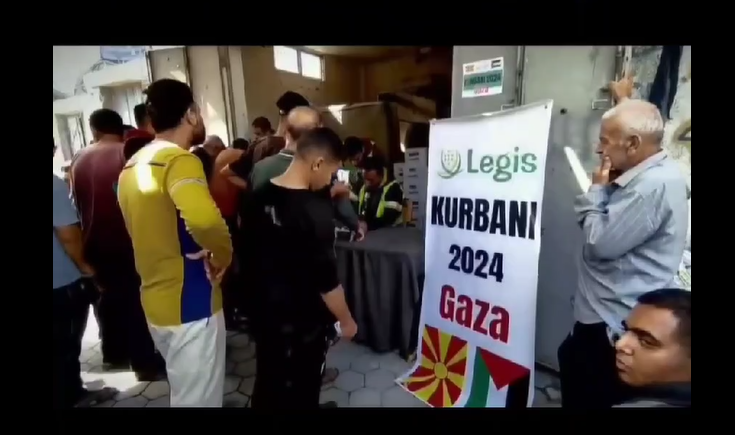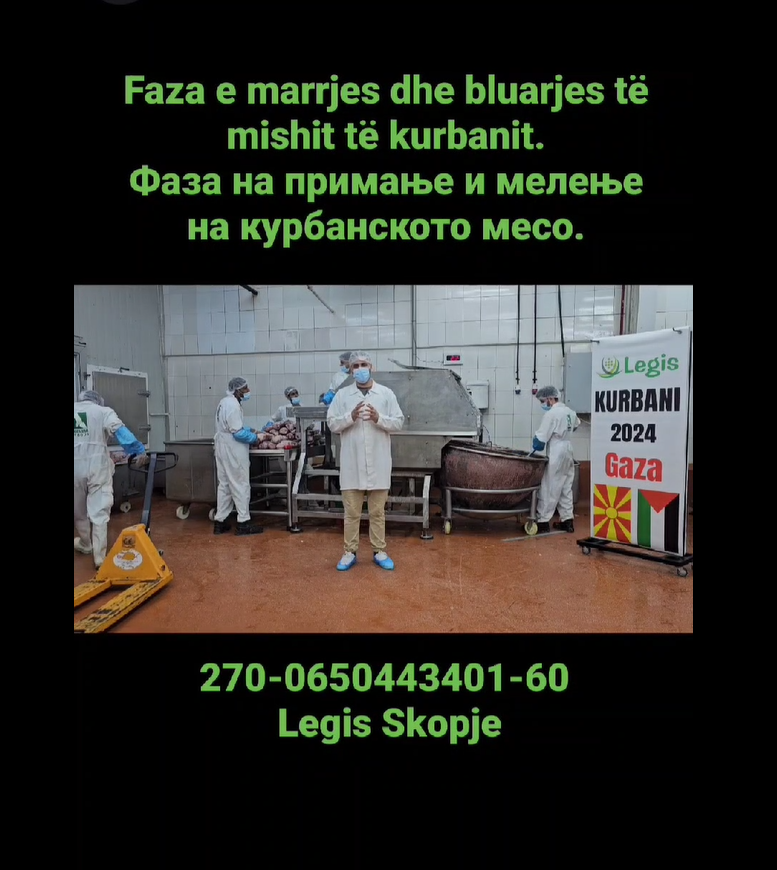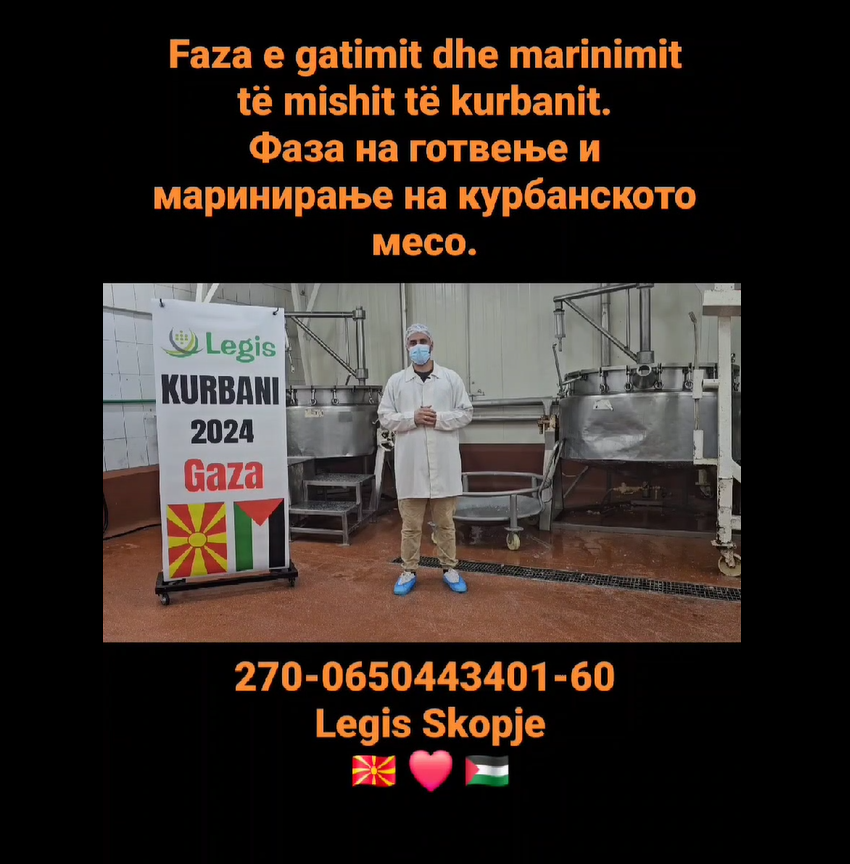It was supposed to have closed. But migrants and refugees from the Middle East, Asia and Africa are still crossing the Balkan Peninsula en route to Western Europe. Many report brutality at the hands of the police.
In April this year, some 3,600 migrants and refugees – mainly from Afghanistan and Iran – were registered in Serbia, according to the United Nations refugee agency, UNHCR.
Bosnia last year registered 25,000, though only 3,500 chose to stay in the country while the rest crossed quickly into European Union member Croatia.
No Name Kitchen, NNK, an NGO assisting migrants and refugees, says police violence is on the rise.
Between May 2017 and May last year, NNK recorded 215 reported cases of push-backs by Croatian police to Serbia, of which 45 per cent involved physical violence.
Between May 2017 and December last year, there were 141 push-backs from Croatia to Bosnia, NNK reported, of which 84 per cent involved violence.
Croatian authorities denied police used violence against migrants and refugees, telling BIRN that such accusations were often made up.
BIRN journalists spoke to a number of refugees and migrants in Serbia, Bosnia and Slovenia about their experiences with Croatian police. Most chose to be identified only by their first names.
Ahmed: ‘Nobody hears you’
“They make the music loud and start beating us, one by one. With sticks, electrical sticks…,” said Ahmed, a Moroccan who had spent the past month in a migrant camp in the small Serbian border town of Sid.
Ahmed said he had tried several times to cross the nearby border into Croatia, running a gauntlet known among migrants and refugees as ‘The Game’, but had been turned back each time by Croatian police.
“I’ve been captured and they turn me back, beat me and turn me back,” he told BIRN. “They would come out from the car, one by one and they start, like that until you scream and nobody hears you,” he said.
Ali: ‘Police have no heart’
Ali and a group of friends had made it into Croatia from Bosnia in April and walked for six days in the direction of Slovenia.
“Police officers, they caught us and after that, they brought us in the police station and we were for four hours in the police station like a prisoner and after that… they beat us,” he told BIRN in the northwestern Bosnian town of Bihac, a hub for migrants and refugees trying to cross the Croatian border.
“Police have no heart. They don’t want to see that the guys are human. It’s really horrible.”
Nue: ‘I don’t have a country’
Some of those BIRN spoke to said they were fleeing repression in their own countries.
Nue, a Palestinian now also stuck in Sid, said: “My country, I don’t have a country because I am from Palestine… I have ID just to say I am from Palestine.”
Nue said that when he tried to cross the border, he was caught by the Croatian police. He pointed to a cut on his head.
“When he’s [the police officer] catching me, he does like this,” he said, imitating being beaten. “I have to just stay in the tent because maybe I have a problem in my head because [the beating was] very strong.”
Nue said he was now sleeping in the street.
Another man, in the centre of Sid, said police were also violent towards his wife, who was nine months pregnant when BIRN spoke to the couple.
“They don’t care if she’s pregnant or not,” he said. “There is no human qualities in them, you understand. I never seen such people.”
Muhamed: Old and new injuries
Muhamed, from Tunisia, said he had been in Serbia for six weeks having been beating by police on the Croatian border.
“They done with you everything,” he said, and showed injuries he said were inflicted the day before by Croatian police.
Muhamed said he was beaten for 10 minutes and then sent back to Serbia.
“Everytime, doing this, everytime, look, this old and this new,” he said, pointing to the bruises and cuts.
Khalid: It was necessary
In a migrant camp in Slovenia, Khalid, from Eritrea, said he had been deported back to Bosnia eight times.
“I came to Ljubljana by walk,” he said.
“[Croatian police] deported me eight times – four times to [Velika Kladusa] and four times to Bihac. They beat us, and they take [our] phones. They make many things.”
Though he personally had not faced violence, Khalid said he knew of many others who had.
“All the people now, they forget everything because they crossed the borders and also we have to tell them sorry, we cross your country… It was necessary to do it.”
Activist: ‘It’s worse and worse’
Diego Menjibar, an activist with No Name Kitchen, told BIRN:
“They are beaten by batons in borders. Also, with fist, kicking them. We have a lot of cases every week of people beaten with batons, with physical violence, also verbal violence and some of them, they also passed out while they [were] beat, so we have a doctor here.”
Menjibar spoke in a disused factory in Sid that is now filled with tents for migrants and refugees. Roughly 100 pass through the camp each day.
“We talk with the people in the squat and we listen what they say and every time it’s worse and worse,” he said.
Beaten around the legs
In April, Swiss broadcaster SRF and the crew of the TV programme “Rundschau” spent three weeks in the fields on the Bosnian-Croatian border speaking to migrants and refugees in the moment after they were turned back by Croatian police.
“I was literally running after these people when they came down [after being deported],” SRF journalist Nicole Vögele told BIRN. “I was aware that now what we really need is a full line of evidence.”
In May, SRF broadcast a piece showing Croatian police pushing back migrants and refugees into Bosnia. Vögele said many sustained injuries to their legs from being beaten by police with sticks.
“Most of them were showing me the [lower] parts of the legs,” Vögele said. “Two days later, I asked them if they have same traces because just an hour after the beating, as you can imagine you can see a bit of red. But two days later it is clearly visible.”
In the SRF report, an Afghan family, including small children, spoke of bring stopped in the forest by Croatian policemen.
“They pointed their guns at us and said ‘Stop’. We were very scared and cried,” said the oldest of the children. When the family asked for asylum, the police officers laughed and said that they would be given “Bosnian asylum” – meaning that they would be deported back to Bosnia.
Injuries
The Serbian-based NGO Asylum Protection Centre has also gathered extensive evidence of Croatian police brutality.
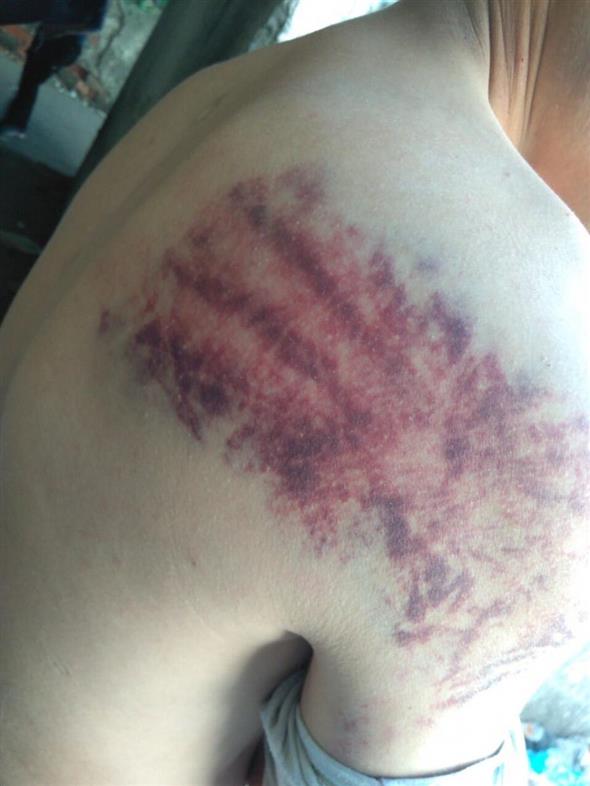
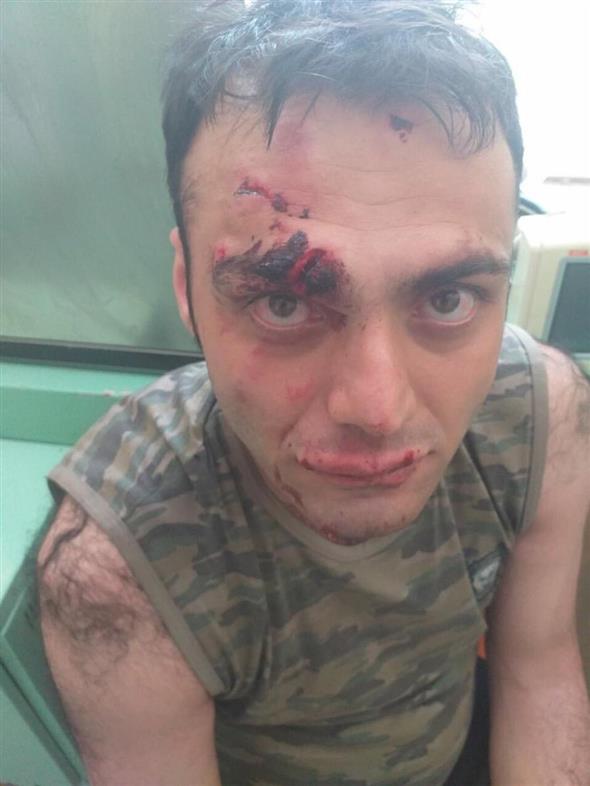
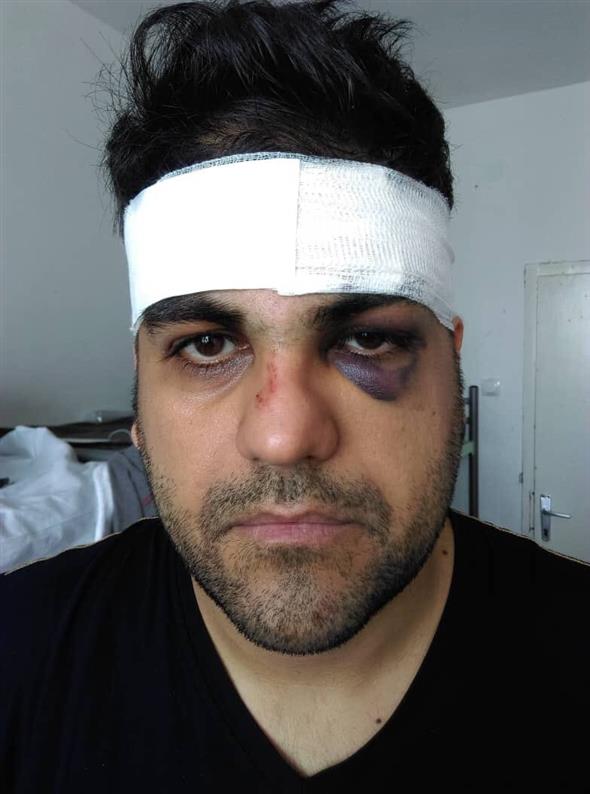
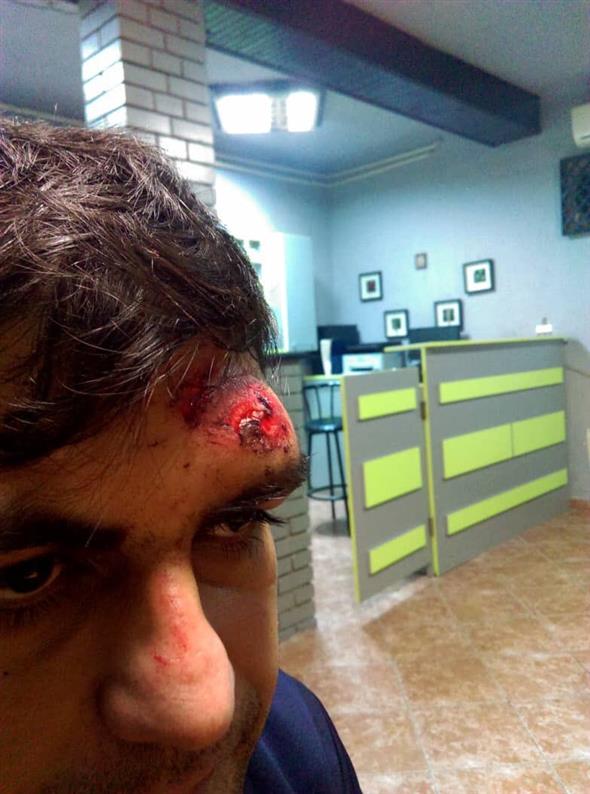
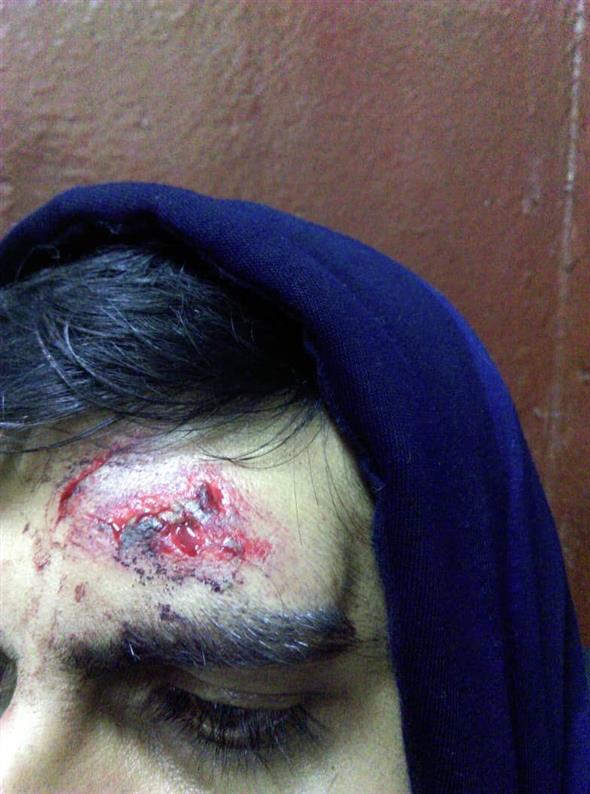
In late April, Rados Djurovic, the director of the centre, said instances of violence were on the rise.
The NGO has also gathered evidence of migrant families, including children, being starved and exhausted and illegally pushed back into Serbia by Hungarian police.
Police denial
The office of the Croatian ombudsperson said it had acted in more than 50 cases concerning refugees and migrants.
The cases “often involve complaints on various grounds, including police treatment,” the office said in a written reply to BIRN.
Most complaints concerned Croatian and Hungarian police.
“The complaints relate to various types of violence, from hits by hands and sticks to the bite of official dogs,” the office said.
The local health centre in Bihac, in northwestern Bosnia, said it saw up to 10 cases of violent injuries each month, “but injuries are done by various subjects, i.e. the internal conflicts of migrants, third parties and / or police”.
Croatia’s interior ministry said it had looked into all complaints of alleged coercive measures against migrants and that none had warranted further criminal investigation.
“In all these cases, detailed field inspections were carried out in police administrations, and so far in none of the cases have been found that police officers are using forced means against migrants,” it told BIRN.
The ministry stressed its respect for the fundamental rights and dignity of migrants and that it used “prescribed procedure for returning to the country from which they illegally entered into the Republic of Croatia.”
“Migrants are most often falsely accusing police officers of violence, expecting such accusations will help them with a new attempt to enter the Republic of Croatia and continue their journey towards the destination countries,” it said.
In Bosnia, a police spokesman in the Una-Sana canton, where Bihac is located, said police had not received any complaints of violence against migrants and refugees by Bosnian police.
Source: balkaninsight


